Mind’s Eye – Spring 2025


Welcome to Mind’s Eye, the digest from the British Psychotherapy Foundation.
It contains a salad of useful and interesting links, articles, and pointers to conferences, webinars and trainings.
It comes from the bpf, which is now proving itself to be a thoroughly 21st century organisation with a range of existing and new trainings, all of which can be found here.
The bpf is London and Newcastle-based, with a requirement to attend in person for most courses. However, we are now offering two online-only courses from this year, which can be found below:
Psychodynamic and Jungian Theory for Qualified Practitioners – 1 year – Online
Foundation Course in Psychotherapy and Counselling – 1 year – Online
Please get in touch if you have any thoughts or ideas for forthcoming issues of Mind’s Eye:
News:
New WHO guidance calls for urgent transformation of mental health policies
The World Health Organization (WHO) today launched new guidance to help all countries reform and strengthen mental health policies and systems. Mental health services worldwide remain underfunded, with major gaps in access and quality. In some countries, up to 90% of people with severe mental health conditions receive no care at all, while many existing services rely on outdated institutional models that fail to meet international human rights standards.
The guidance provides a clear framework to transform mental health services in line with the latest evidence and international human rights standards, ensuring quality care is accessible to all.
“Despite rising demand, quality mental health services remain out of reach for many people,” said Dr Tedros Adhanom Ghebreyesus, WHO Director-General. “This new guidance gives all governments the tools to promote and protect mental health and build systems that serve everyone.”
Join:
Worldwide conferences
10th World Congress for Psychotherapy (WCP) ‘Polarities of Life’ 16th – 19th July 2025 at SFU Vienna
The theme of the 10th World Congress for Psychotherapy is ‘Polarities of Life’, which seeks to explore the opposing forces that shape human experience and how they impact mental health and wellbeing.
The congress will bring together leading experts from various fields of psychiatry, psychology, psychotherapy, neuroscience, and philosophy to share their insights and exchange ideas.
It will provide an opportunity for professionals and researchers to learn about the latest advances in psychotherapy and mental health care.
The congress will include plenary sessions, workshops, and symposia covering a wide range of topics related to mental health and psychotherapy.
WCP Congress 2025 will take place at Sigmund Freud Private University in Vienna.

Read:
Therapy Today, March 2025:
It changed my life (Free to Access)
‘After years of being silenced, I found someone who wanted to listen.’
‘My healing journey began aged 35, almost two decades after I was a victim of acquaintance rape as a student. I repressed the memories for nearly 20 years before terrifying flashbacks, nightmares and debilitating panic attacks made life unbearable, and I sought help from psychotherapist Paddy Magrane. At the time I didn’t think about the fact that he was male. I thought of counselling as an extension of the medical profession, and most of my doctors were men. I thought that I’d turn up and he’d fix me. In hindsight that seemingly unconscious decision proved to be hugely restorative.’
Anna Wickins, an integrative counsellor from Devon, has co-authored a book with her psychotherapist, Paddy Magrane about their journey together to her healing.
Both Sides of the Couch – Anna Wickins and Paddy Magrane. Biteback publishers.

Psychology Today:
What It Means to Be an Adult Today | Psychology Today
A long and fascinating article around the topic of adulthood and maturity.
‘Somewhere in the last generation, the standard markers of adulthood—establishing a career, maintaining a relationship, buying a home, having children— got delayed. In fact, these benchmarks of adulthood are not merely delayed, they seem to be losing their grip entirely. All are far less compulsory than they were just a few decades ago.’
Bpf Events:
Events – The British Psychotherapy Foundation
Follow the link for all the details and upcoming events including the Annual Lecture given this year at bpf by Josh Cohen on 31 May (hybrid).
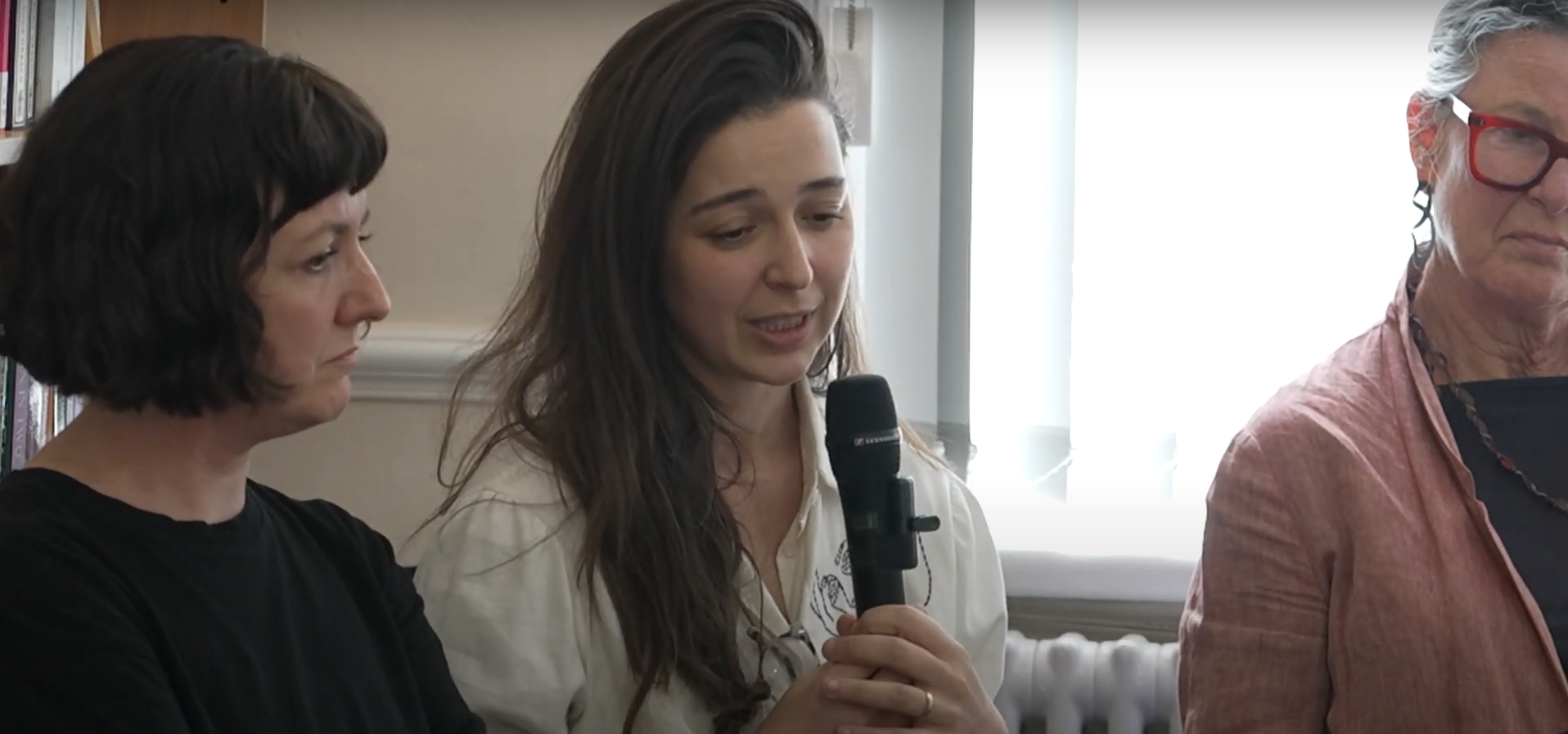
BJP Newsround:

The uncanny COVID-19 pandemic: The traumatic impact on our sense of the familiar
In the shadow of the COVID-19 pandemic, familiar life may be said to have become unequivocally altered as a result of the diffuse death threat posed by the virus and the unprecedented experience of a global lockdown. The unexpected superposition of familiarity and unfamiliarity can be linked to the psychoanalytic notion of the uncanny.
Attend:
The Menopause Transition | The Minster Centre
This day long course addresses topics such as:
- The basics of menopause physiology, what to expect, when and for whom.
- Myth busting the patriarchal narrative
- A seasonal model showing psychological growth
- Embodied practice for all ages and genders to experience the transition
- £105 for non-members. 3 May 2025 at Minster Centre, London NW6.
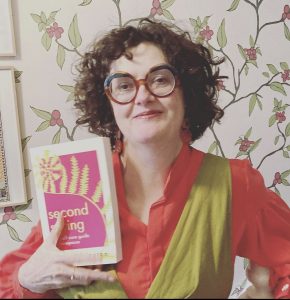
Events – The Black, African and Asian Therapy Network
There are a lot of useful events happening at BAATN in 2025 – click the link to find out more.
These include Bilingual practitioners Gathering, a Men’s gathering, and Celebrating the Multiracial experience: Exploring the stressors of Shadism/Colorism.
UCL:
Memory and its Vicissitudes | Psychoanalysis Unit – UCL – University College London
Memory and its vicissitudes – This conference will explore the role of memory in psychoanalysis today, and will also offer broader reflections on contemporary sociocultural debates about the need to forget and the imperative to remember problematic histories.
November 2025 28-30 November.
Institute of Psychoanalysis:
The Political Mind Series 2025
The role of the unconscious in political and social life.
These include seminars on:
Lectures:
Manor House Counselling – 40th Anniversary Lecture
Wednesday 21st May 2025, 7-10 pm
Professor Kahr will share his experience of how we can not only enhance our own personal skills and careers more efficaciously, helping us to flourish more fully as practitioners with more exciting careers but, also, he will consider how by developing our own verbal potency and our own skills as experts, we will have the capacity to collaborate more fully with other institutions and thus work towards developing greater integration within the profession. He will also explore how we can take fuller ownership of our clinical and psychological wisdom and thus help to expand the respectability and the impact of the British psychotherapy field.

26th April. 2-6pm. Symposium of experts including Fergeal Keane and Margaret MacMillan.
What motivates people to start and support wars? How do humans think, feel and act during conflict? How do we make sense of the devastating conflicts that have shaped our world? Are humans psychologically hardwired towards war, or is true peace possible?
IWM’s temporary exhibition War and the Mind explores war’s many psychological dimensions, from the First World War to the present day.
Watch:
Confer – CPD – Educational Events for Psychotherapists
The ever fascinating CONFER series of events includes the upcoming webinar:
The Therapist’s Torment: Transforming our unbearable experiences into Good Therapy
Being a psychotherapist requires, at times, an ability to surrender to unbearable emotional experiences in order to stay emotionally present with the client. Psychotherapy is difficult work to undertake. Yet we rarely discuss the depth of this difficulty or how to manage it.
A live webinar with Dr Dhwani Shah. 14 June 2025
Early bird £70.
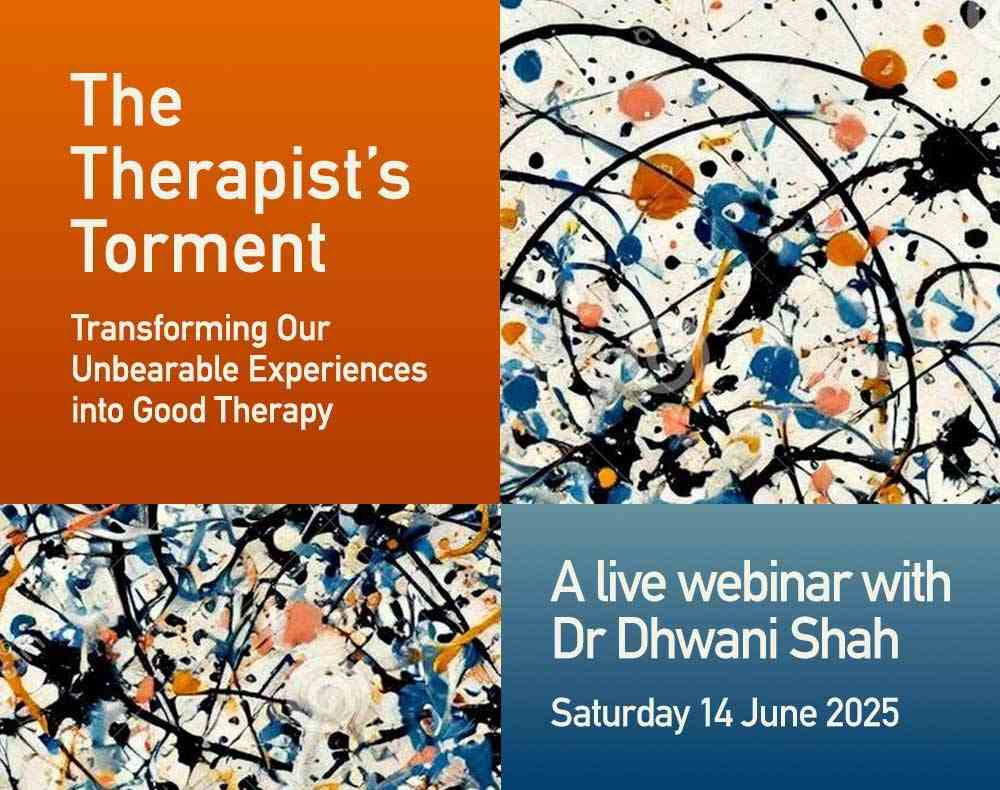
MindinMind
Dr Margot Sunderland Live Legacy Interview | MINDinMIND
Live Legacy interview with Dr Margot Sutherland – Pioneering Arts and Neuroscience in Child Psychotherapy
Dr Margot Sunderland, a pioneering figure in integrative child psychotherapy, has a career that has bridged psychotherapy, neuroscience, arts and education. In this interview, Margot will share her innovative therapeutic approaches with children and young people which integrate the arts with the latest developments and research in neuroscience. We’ll explore her courageous journey challenging established orthodoxies in the field, the professional controversies she navigated, and how her determination to create new therapeutic approaches in child psychotherapy has influenced practice in the UK and beyond.
30 April 2025
£39/£18

Listen:
Podcasts
Internet gaming: good or bad for our mental health? | Mental Health Foundation
Useful set of podcasts from the Mental Health Foundation, including this one on internet gaming. Others include topics such as loneliness, green space, ageing and others.
Reith Lectures 2024 – Delivered by forensic psychiatrist and psychotherapist Dr Gwen Adshead
Listen again to these fascinating lectures on BBC Sounds.
Four questions about violence.
Is violence normal? Aren’t they all evil? Does trauma cause violence? Can we change violent minds?
Body Image, with Professor Alessandra Lemma – Conversations with Annalisa Barbieri – Apple Podcasts
‘Alessandra and I were working on a problem for my Guardian column. The problem was from a reader who said that, despite them being an adult, they were still being body shamed by their parents for being overweight; this is sadly by no means an unusual problem to arrive on my desk. In our chat, Alessandra said a line which stayed with me all of last year. It was this: ‘You can’t delete developmental history; it is always there even if you change the surface of the body. ‘
Fascinating conversation with the ever-riveting Alessandra Lemma.
BBC Radio 4 March 12th You and Yours
Two million people are reportedly waiting for mental health treatment on the NHS, leading many people to go private. However, anyone can call themselves a therapist, counsellor or psychologist. We hear why complaints are on the rise and whether regulation of the sector is needed to protect consumers.

Visit:
Unsilenced: Sexual Violence in Conflict- Imperial War Museum
23rd May – 2nd November 2025, Free
“Wherever conflict erupts, sexual violence is present.”
Unsilenced considers the contexts in which sexual violence occurs in conflict, exploring how propaganda shapes perceptions of gender and power to shine a light on this often-silenced issue.
The exhibition tells the untold stories of child evacuees, victims of trafficking, prisoners of war, and survivors from the First World War to present-day conflicts, and highlights the ongoing efforts of those fighting for justice and working to prevent conflict-related sexual violence.

Women & Freud: Patients, Pioneers, Artists – Freud Museum London
From the early “hysterics”, who Freud called ‘his teachers’, to later patients, many of whom like Princess Marie Bonaparte became analysts, to his daughter Anna Freud and her partner Dorothy Burlingham, to artists such as Marie-Louise von Motesiczky, Louise Bourgeois, Paula Rego, Alice Anderson and Tracey Emin, the exhibition draws on manuscripts, images, objects, visuals, and film footage to bring to life the many women who featured in Freud’s history, as well as those affected by his considerable body of thinking, rethinking and practice .
This exhibition is on til 5 May – catch it before it closes.
At the Freud Museum,
Wednesday – Sunday 10:30 – 17:00
20 Maresfield Gardens
Hampstead
London NW3 5SX
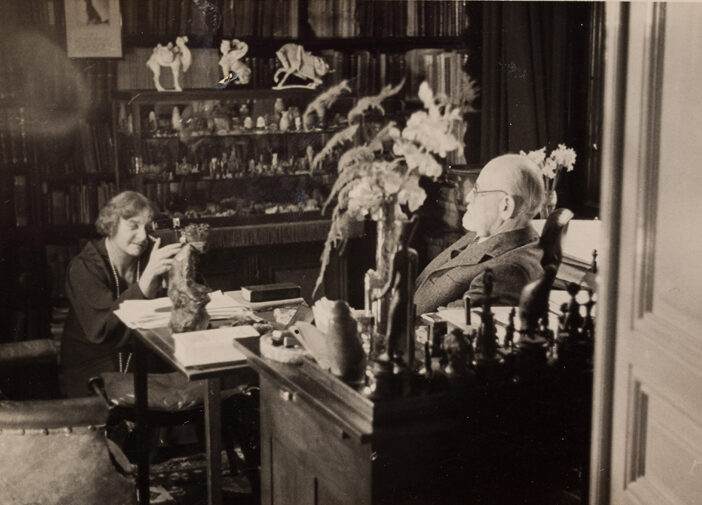
Books on the mind:
Decolonisation is a term which has become a modern day buzzword as we look to understand the influences of the systemic structures of oppression which have molded all of our identities, yet, in the worlds of counselling and psychotherapy there has been a struggle to understand what this term means in regard to our profession. Decolonising Counselling and Psychotherapy considers the ways in which the systems of colonization have taken over and are continually reconstituted within our profession.
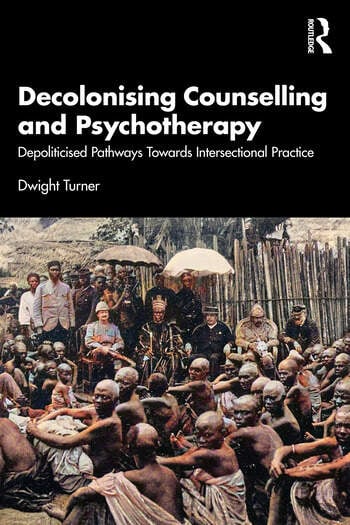
Therapy: The Basics – 1st Edition – Sissy lykou – Routledge Book
Therapy: The Basics is an introductory book to psychotherapy and its different theoretical approaches. It attempts to demystify and de-stigmatise therapy by answering some common questions posed by prospective clients.
lykou presents an accessible overview of psychotherapy and counselling, mapping a variety of the most popular approaches from psychoanalysis and cognitive behaviour therapy to embodied and creative therapies, whilst giving an overview of the roots of psychotherapy in traditional and indigenous healing methods. The book also acknowledges criticisms of current approaches, with their neo-liberal heteronormative Eurocentric perspective, and considers where therapy stands in today’s globalised world. The book’s structure allows different umbrella theories and their developments to be explored separately but also in relation to one another.
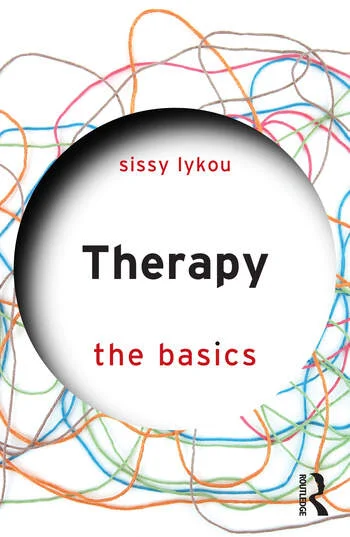
A Guilty Victim: Recovering Creativity after Trauma and Abuse, Toby Ingham . Karnac.
A Guilty Victim tells the true story of one man’s recovery from childhood trauma, grooming, and sexual abuse at a Catholic boarding school. This contemporary account of psychotherapy with an adult survivor is written with the client’s full consent. It includes nine moving and powerful illustrations created by the client to tell his life story.
Toby Ingham is a bpf member.
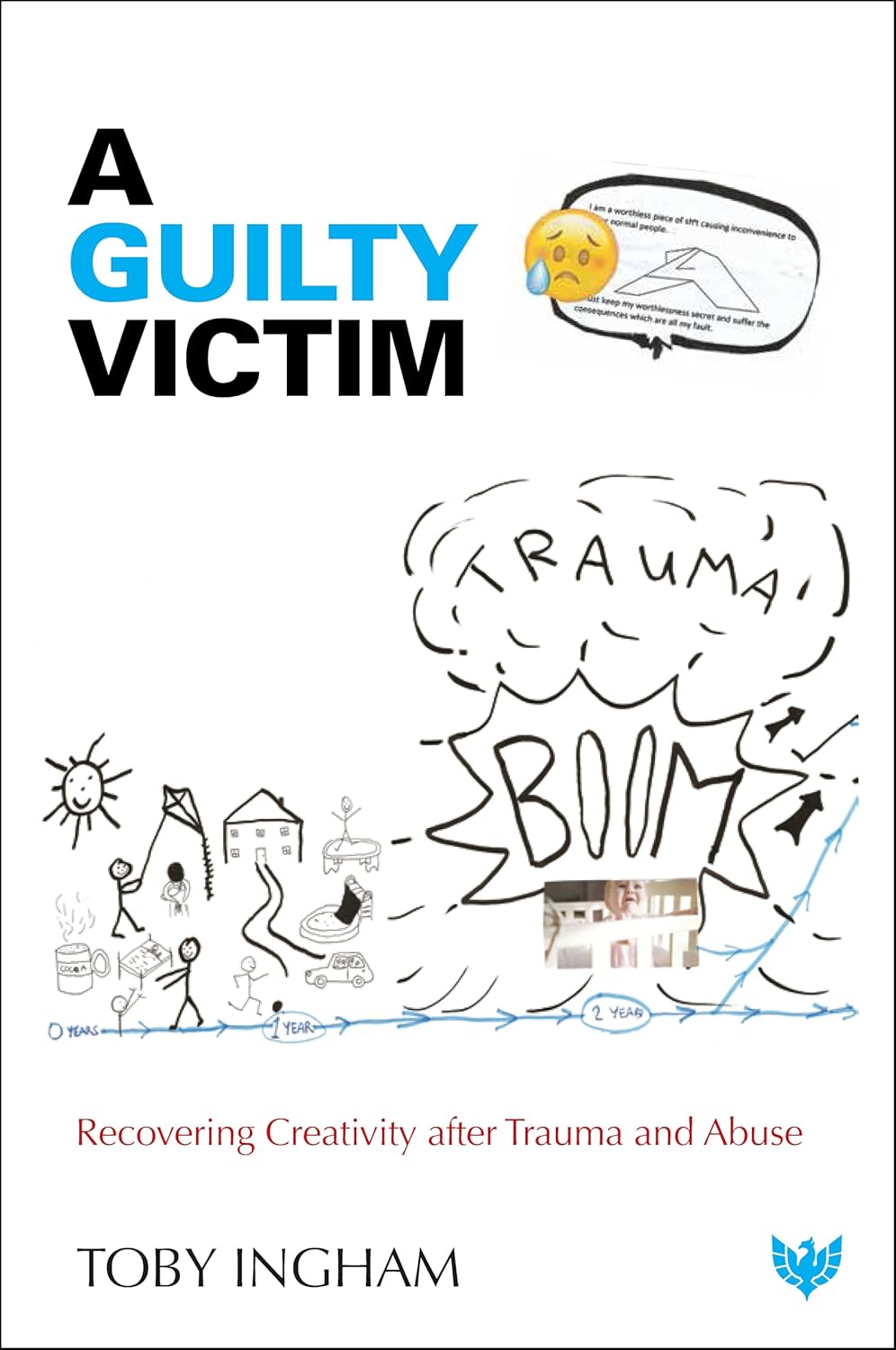
Author event: Tony Ingham Presents ‘A Guilty Victim’
A book Launch and Q&A with Toby Ingham, author of ‘A Guilty Victim: Recovering Creativity After Trauma and Abuse’.
Date: 12/06/2025 Time: 18:00 -19:30 Venue: Online Via Zoom
Further details: Author event: Tony Ingham Presents ‘A Guilty Victim’ – The British Psychotherapy Foundation
The Age of Diagnosis: Sickness, Health and Why Medicine Has Gone Too Far
Suzanne O’Sullivan.Hodder. 2025.
From autism to allergies, ADHD to long Covid, more people are being labelled with medical conditions than ever before. But can a diagnosis do us more harm than good?
The boundaries between sickness and health are being redrawn. Mental health categories are shifting and expanding all the time, radically altering what we consider to be ‘normal’. Genetic tests can now detect pathologies decades before people experience symptoms, and sometimes before they’re even born. And increased health screening draws more and more people into believing they are unwell.
‘These are incredibly difficult areas to explore...O’Sullivan is brave to take this subject on, and she hits the target… O’Sullivan is an excellent, fluid writer, and an eloquent speaker… In a world where medical misinformation and disinformation flourish, and people die as a result, it takes courage to counter them without pandering to stereotypes. But that is what The Age of Diagnosis does so well… Its overall message is clear: diagnosis is a tool to be wielded with the utmost caution, and tolerance for difference and for imperfection can go a long way in keeping us healthy. ‘– Adam Rutherford ― The Guardian

